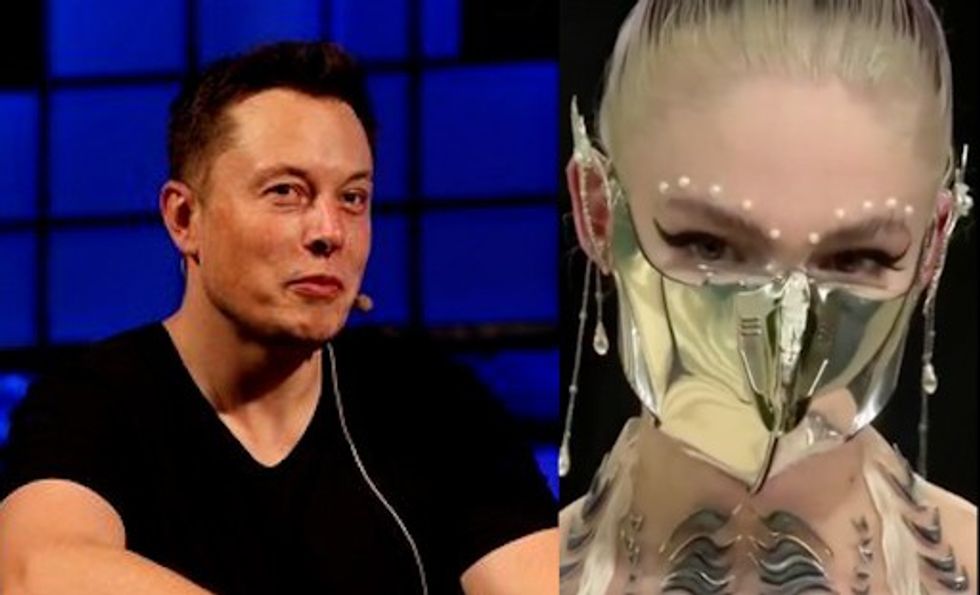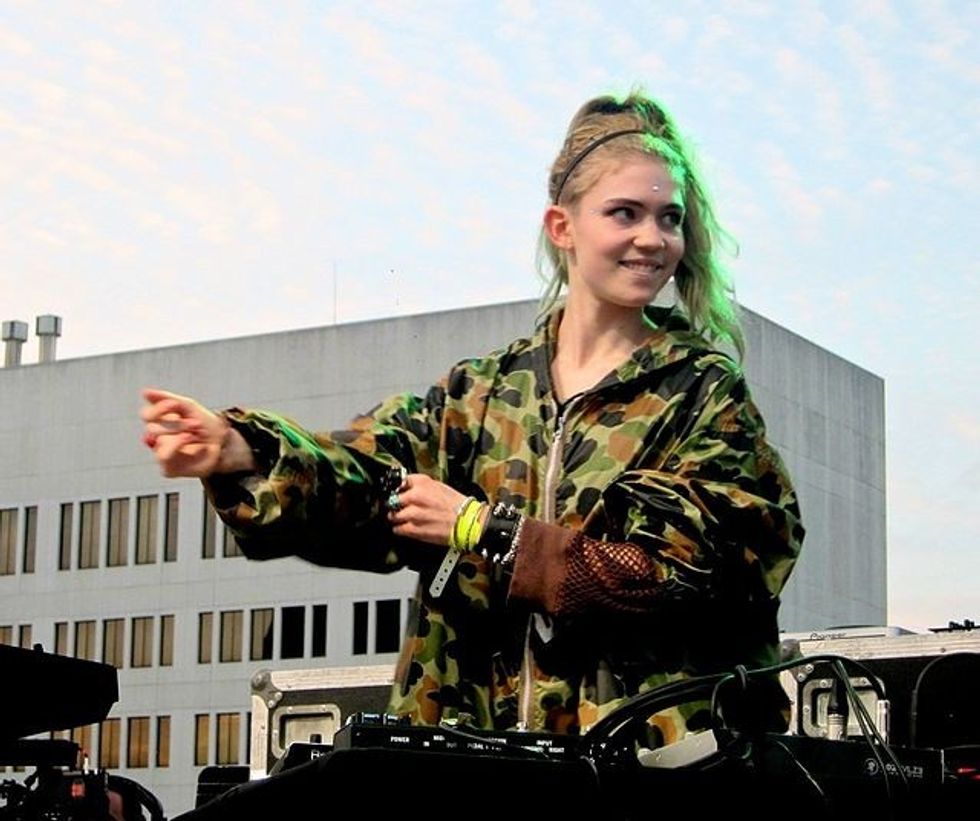
Grimes and Elon Musk both on the frontier of disruptive technology
Instagram/WikiCommons
Grimes has stoked the music industry debate over AI generated music copyright by greenlighting AI artists to use her voice… for a 50 per cent royalties split
Don't Miss
Most Read
Trending on GB News
Musician Grimes has laid down a test case for the legality of AI-generated music by removing copyright on her voice for use in AI music - so long as artists split the royalties.
Debate over artificial intelligence music exploded last week when a fake Drake and Weeknd song titled ‘Heart On My Sleeve’ created by Ghostwriter977 went viral online before being removed by streaming services.
Where most artists are concerned for their careers, Claire Elise Boucher, 35, professionally known as Grimes, has sensed an opportunity to capitalise or at least experiment with AI-generated music.
Posting on Twitter, the Canadian musician said: “I'll split 50 per cent royalties on any successful AI generated song that uses my voice. Same deal as I would with any artist I collab with. Feel free to use my voice without penalty. I have no label and no legal bindings.”

Grimes has described her relationship with Elon Musk as "very fluid"
ReutersThe singer added: “Im just curious what even happens and interested in being a Guinea pig.”
In an interview with the New York Times in October 2020, Grimes said: “Creatively, I think AI can replace humans.
“And so I think at some point, we will want to, as a species, have a discussion about how involved AI will be in art.”
Grimes began a relationship with Elon Musk through Twitter in 2018 and gave birth to their son, Musk’s seventh child, in May 2020 whom they named X Æ A-12, though this became X Æ A-Xii due to California law.
The pair have been in an on and off relationship which was last confirmed as paused in March 2022.
The only condition presented was that songs containing “rly rly toxic lyrics” would be taken down, although Grimes admitted she wasn’t sure if this would even be possible but was “curious what the actual legality is”.
AI-generated music has muddied the copyright waters, with Ghostwriter977's track being removed for a valid copyright notification over the use of a ‘producer tag’ but otherwise falling through the cracks as no part of the AI-generated song is actually ‘copied’.
Instead, Universal Music Group (UMG), Getty and other publishers are claiming the process by which AI services collect training data breaches copyright i.e. the consumption of copyrighted Drake songs.

Grimes performing in 2012
WikiCommons
James Murtagh-Hopkins, UMG senior vice president of communications, stated that “platforms have a fundamental legal and ethical responsibility to prevent the use of their services in ways that harm artists”.
The copyright battle is set to be fought out on streaming services and search engines, putting corporations such as Google between a rock and a Bard place.
Should Google agree with UMG that AI-generated music is in breach of copyright and remove such content from YouTube, then it will undercut its own fair use argument for Bard and other generative AI products it offers.
Equally, if Google disagrees with UMG and claims AI-generated music is fair use to protect its AI arm, then this is likely to trigger lawsuits from UMG and other labels which puts YouTube at threat.
In an interview with The Verge, Microsoft CEO Satya Nadella said “it’ll have to be really thought through as to what is the fair use” and predicts that “there’ll be some legal cases that will have to create precedent.”
Until then, artists such as Brian Eno, Peter Gabriel, David Guetta and now Grimes will look to embrace the prospects of AI while others will look to keep a lid on the disruptive technology.







